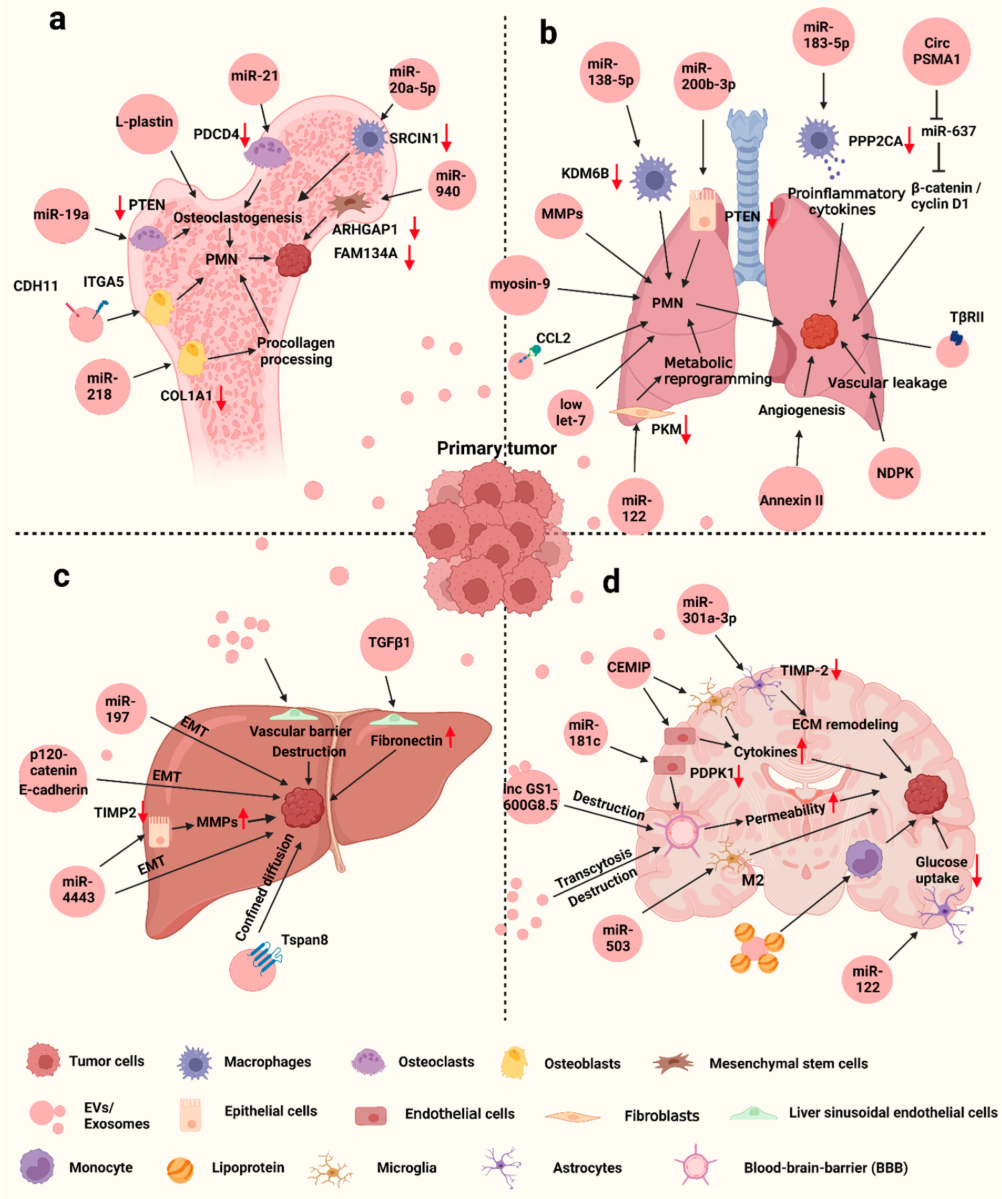Breast Cancer Exosome Research Service
- Transfer oncogenic proteins and RNAs that promote tumor progression.
- Induce epithelial-to-mesenchymal transition (EMT), facilitating metastasis.
- Reprogram immune cells and contribute to immune suppression.
- Carry predictive biomarkers for therapy response and recurrence.
- Promote resistance by exporting drugs or transmitting resistance-associated molecules.
- Isolated Exosomes: ≥200 μg total protein or ≥100 μL in PBS
- Plasma/Serum: ≥2 mL per sample
- Cell Culture Supernatants: ≥5 mL per sample
- Other Body Fluids: Please inquire for specific requirements
Breast cancer remains the most commonly diagnosed cancer and a leading cause of cancer-related mortality among women worldwide. Despite advances in early detection and treatment, disease heterogeneity, drug resistance, and recurrence continue to pose significant clinical challenges. Exosomes, small extracellular vesicles secreted by breast cancer and stromal cells, have emerged as crucial players in tumor biology. Exosomes carry a diverse array of biomolecules, including proteins, RNAs, lipids, and metabolites, reflecting the physiological or pathological status of their parent cells. These vesicles facilitate intercellular communication, influencing processes such as tumor growth, immune evasion, angiogenesis, metastasis, and drug resistance. Importantly, exosomes are detectable in biofluids such as blood and saliva, offering a non-invasive window into the tumor microenvironment.
In breast cancer, exosomes are known to:
Understanding these exosomal functions is critical for identifying early-stage biomarkers, developing targeted therapies, and unveiling mechanisms of treatment failure.

Figure 1. Exosomes Mediate Breast Cancer Metastasis to Bone (a), Lung (b), Liver (c) and Brain (d)
Service at MtoZ Biolabs
MtoZ Biolabs offers a specialized Breast Cancer Exosome Research Service which combines extensive experience in extracellular vesicle biology with cutting-edge technologies. We provide a one-stop platform for exosome isolation, characterization, omics profiling, functional assays, and bioinformatics interpretation.
Our capabilities include:
💠High-efficiency exosome isolation from breast cancer cell lines, patient tissues, plasma, serum, or other biofluids.
💠Characterization by nanoparticle tracking analysis (NTA), transmission electron microscopy (TEM), and exosomal markers (CD9, CD63, CD81, EpCAM, etc.).
💠Multi-omics profiling
1️⃣Proteomics: Identification of oncogenic or resistance-related proteins using LC-MS/MS.
2️⃣Transcriptomics: RNA-seq, miRNA-seq, and lncRNA profiling from exosomal content.
3️⃣Lipidomics and metabolomics: Analysis of bioactive lipids and metabolic reprogramming markers.
💠Functional studies: In vitro and in vivo assays for exosome-mediated migration, invasion, epithelial-to-mesenchymal transition (EMT), drug resistance, and immune modulation.
Analysis Workflow
Our end-to-end analytical pipeline for breast cancer exosome research includes:
1. Sample Collection & Preprocessing
Suitable for plasma, serum, conditioned media, or tumor tissues, followed by quality check.
2. Exosome Isolation
Using ultracentrifugation, size exclusion chromatography (SEC), or immunoaffinity purification for high-purity vesicles.
3. Validation & Characterization
Exosomal particle size, concentration, morphology, and marker profiling.
4. Multi-Omics Profiling
Targeted and untargeted LC-MS/MS, next-generation sequencing, and metabolic profiling.
5. Functional Assays
Evaluating exosome uptake, EMT induction, immune response modulation, and drug resistance.
6. Data Integration & Reporting
Delivering high-resolution datasets with expert-curated insights and publication-ready figures.
Service Advantages
1. Advanced Analysis Platform: MtoZ Biolabs established an advanced Breast Cancer Exosome Research Service platform, guaranteeing reliable, fast, and highly accurate analysis service.
2. Customizable & Flexible Service: From exploratory discovery to focused validation, our services adapt to your project stage and hypothesis.
3. Experienced Team: Our exosome specialists and oncologists bring domain-specific insights and interpretation.
4. Confidential and Compliant: All data and materials are handled with the utmost security and ethical compliance.
Applications
Our Breast Cancer Exosome Research Service is ideal for a wide range of research and translational purposes:
1️⃣Biomarker Discovery: Identify exosomal proteins or RNAs for early detection, subtype classification, and prognosis.
2️⃣Therapeutic Resistance: Explore how breast cancer exosomes mediate resistance to chemotherapeutics, endocrine therapies, or targeted agents.
3️⃣Immune Modulation: Investigate tumor exosomes' roles in reprogramming macrophages, T cells, or dendritic cells.
4️⃣Metastasis & Tumor Microenvironment: Assess the role of exosomes in pre-metastatic niche formation and stromal remodeling.
5️⃣Liquid Biopsy Development: Use exosome-derived biomarkers in minimally invasive assays for real-time disease monitoring.
Sample Submission Suggestions
We accept the following sample types:
Samples should be stored at -80°C and shipped on dry ice. Avoid repeated freeze–thaw cycles.
*Please consult us for tailored collection and storage protocols to maximize data quality.
Deliverables
1. Comprehensive experimental details (materials, instruments, and methods)
2. Raw data
3. Processed omics data files
4. Quality control reports (NTA, Western blot, TEM images)
5. Functional assay results
6. Bioinformatics analysis
7. Customized report based on project requirements
Our Breast Cancer Exosome Research Service is designed to provide more rapid, high-throughput, and cost-effective analysis, with exceptional data quality and minimal sample consumption. Free project evaluation, welcome to learn more details.
Related Services
Exosome Isolation and Purification Service
Exosome Marker Analysis Service
Exosomes Identification Service
Exosomes Labeling and Tracking Service
How to order?







